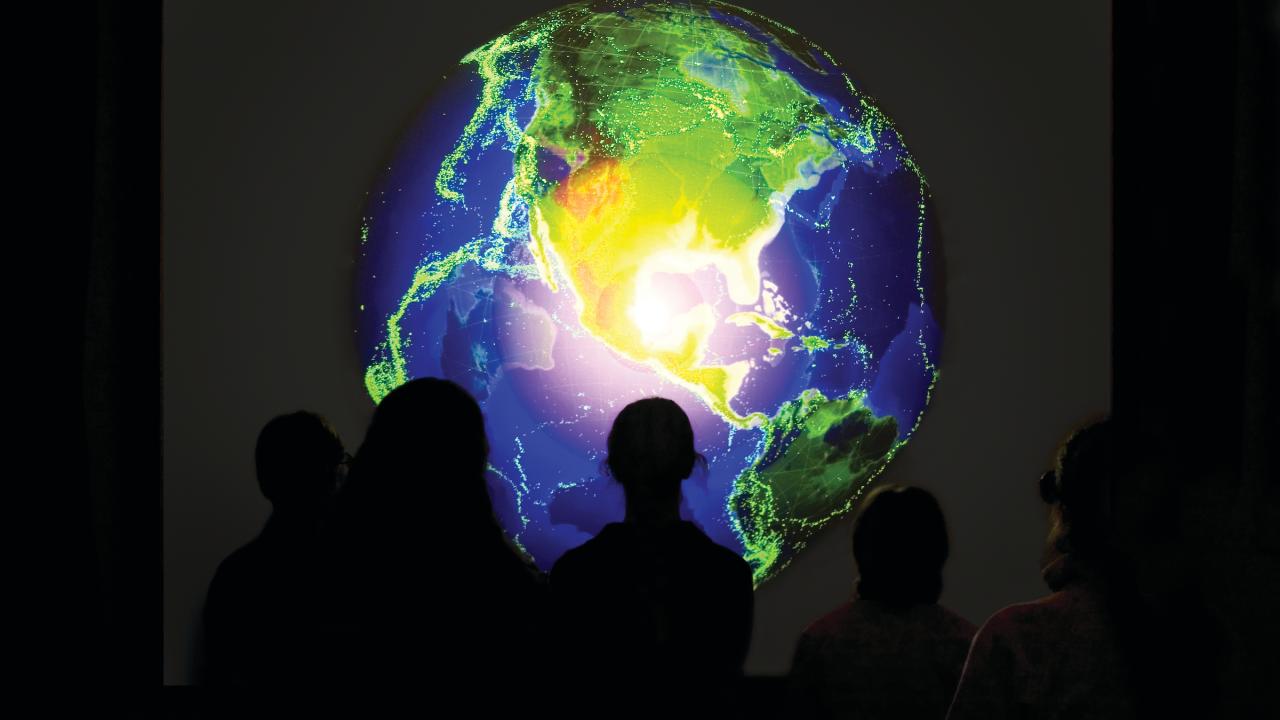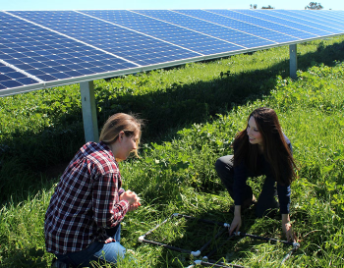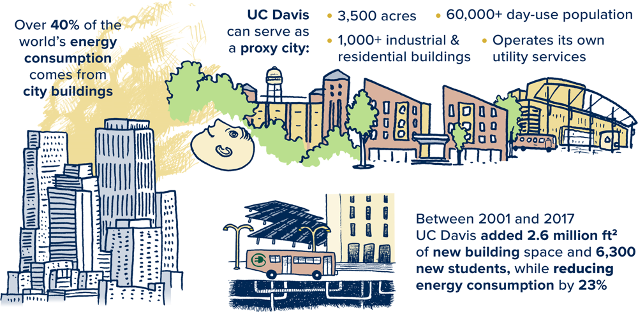
Learning for a Burning Planet: Making Climate Education a Must, not a Maybe
The climate crisis is no longer a distant issue but an emergency. Its effects, such as rising temperatures, extreme weather, and environmental degradation, are disrupting communities and impacting lives around the world. Community education and engagement are critical to combat this crisis, and universities must prepare students with the knowledge and skills needed to address this challenge and help create a sustainable future.
To further advance UC Davis’ leadership role in climate and sustainability, a group of professors from across the university developed a proposal to establish a Climate Crisis General Education (GE) requirement for all undergraduate students. This initiative builds on similar academic movements, such as UC San Diego’s Jane Teranes Climate Change Education Requirement, and aligns with global educational frameworks that stress the importance of climate literacy and sustainability. Understanding that climate issues affect all fields of study, the new study requirement would ensure that every student, regardless of their major, gains a broad understanding of climate science, justice, and solutions.

The new requirement would also explore the social context of the climate crisis, teaching students about its disproportionate effects on marginalized communities. Furthermore, it would emphasize strategies for mitigation, adaptation, and sustainable development, preparing students to apply this knowledge in various sectors, from engineering and policy to business and the humanities.
The proposal has received overwhelming support from faculty, students, and community members, highlighting the commitment to climate education across the campus. Professor Elizabeth Miller, one of the professors leading this effort, has underscored the urgency of institutionalizing this knowledge, as well as the widespread student advocacy for its inclusion. By adopting this requirement, UC Davis would reinforce its position as a leader in sustainability education and ensure that its graduates are equipped to navigate and influence a world increasingly shaped by climate challenges.
The Next Move

Including Professor Miller, thirteen professors from varying departments prepared the proposal for consultation by the Davis Division of the Academic Senate. To offer stakeholders outside of the Academic Senate an opportunity to endorse this proposal, the draft was distributed to key student and staff groups on campus. After only two weeks, 530 endorsements were collected, provided by undergraduate and graduate students, staff, Members of the Academic Senate and Academic Federation, and the wider Davis/Yolo County community.
As a university that harbors a strong commitment to addressing this planetary crisis, it is time for UC Davis to implement systemic efforts to teach students the sweeping implications of climate change. Alongside UC Davis’ strong commitment to climate education is an understanding of student priorities, which is why the proposed Climate Crisis GE is designed to have no impact on time to degree completion. Most courses that satisfy the Climate Crisis GE will also count towards the required 52 units of Topical Breadth and could overlap with existing core literacies. These measures would ensure a seamless transition for the inclusion of the Climate Crisis GE while enhancing the quality of education for all undergraduate students.
The proposal has been sent to the Academic Senate for consultation and, if approved, is expected to go into effect by Fall 2026 for the graduating class of 2030. In 2025 new classes will be developed and approved to prepare for rollout the following year. To reduce potential challenges for incoming transfer students, classes will initially be introduced as optional. In Fall 2029, the Climate Crisis GE will be a requirement for the class of 2030 transfer students.
Climate Crisis and Sustainable Development
The Climate Crisis proposal aligns well with the existing Sustainable Development Goals. The United Nations 2030 Agenda for Sustainable Development encapsulates 17 Sustainable Development Goals, providing a pathway to a future of equality, sustainability, and peace.
The educational and societal goals embedded within the proposal for the Climate Crisis General Education Requirement parallel values within the 2030 Agenda, both implicitly and explicitly. At its core, this proposal aligns with SDG 13: Climate Action. Action through scholarship demonstrates UC Davis’ commitment to climate justice and its disproportionate impacts. The proposal also aligns with multiple SDGs. Suggested coursework is relevant to clean water and sanitation (SDG 6), affordable and clean energy (SDG 7), sustainable cities and communities (SDG 11), and responsible consumption and production (SDG 12). As a result of these various intersections, the climate courses provide undergraduate students with a holistic quality education (SDG 4).

Moving Forward
The future of sustainable development depends on institutions like UC Davis, where the seeds of climate education are planted and nurtured. Universities are not just centers for learning but catalysts for change, helping students become global citizens who can lead in addressing our most pressing global challenges.
If approved, this Climate Crisis GE requirement would strengthen UC Davis’ position as a leader in sustainability and ensure that every graduate leaves with the knowledge and tools to contribute to a more just, resilient, and sustainable world.
The time for action is now – UC Davis should take the next step in institutionalizing climate education and empowering students to be the change makers the world needs.